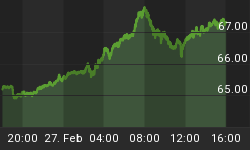Why read: You should know about this - Chinese banks entry into U.S. bankingcould prove to be important.
A May 9 article reported that the U.S. Federal Reserve has agreed to let three Chinese government controlled banks set up U.S. branches and invest in U.S. banks. The piece references U.S. Federal Reserve statements that:
- the 71% Chinese Government owned Industrial and Commercial Bank of China (China's biggest bank with assets estimated at U.S.$2.5 trillion) will become a bank holding company;
- China Investment Corporation (CIC), an investment vehicle responsible for investing the Chinese Governments foreign exchange reserves, and CIC controlled Huijin Investment will become bank holding companies;
- these three Chinese entities (either individually or in some combination) will be allowed to take control of New York based Bank of East Asia;
- the Federal Reserve has concurrently approved:
- the Bank of China (China's third largest bank, and 71% owned by the Chinese Government) to set up a branch in Chicago in circumstances where that bank currently has branches in Los Angeles and New York, and
- the Agricultural Bank of China (China's fourth largest bank with assets reported to be U.S.$1.85 trillion, and 83% owned by the Chinese Government) to set up a branch in New York.
The referenced article, typical of many, simply reports on these U.S. Federal Reserve decisions. It is the only article of over 2,500 overviewed in the past two days that makes mention of these decisions.
Consider the implications of these Federal Reserve decisions in the context of the proverbial 'Camel in the Tent'. The question now is not whether the Camel is in the tent, the question is only whether, when, and over how long a period of time it will take the powerful Camel, whose head (the part it thinks with) is now in the tent, to take the tent over.
Further comments and some possible consequences:
- in theory this is simply a further extension and maturation of globalization, a road the world has been on for at least twenty-five years;
- not immediately, but over time if (or more likely 'as') Chinese banks build larger bases in the U.S., this has to impact U.S. protectionism policies with respect to tariff and trade policies;
- likewise in time, this may (or more likely 'has to') impact U.S. based asset protectionism in the context of Chinese investment in U.S. based assets it considers strategic to it;
- as a minimum this U.S. Federal Reserve decision is from China's perspective 'chicken soup' - it might help but it can't hurt;
- at an extreme this U.S. Federal Reserve decision signals a further shift in world economic power;
- remember the golden rule 'he who has the gold makes the rules'; and,
- recall the old adage: 'give him an inch and he'll take a mile'.
What appears to be a comparative 'passing news item', may prove over time to be what future commentators may come to reference as a 'land-mark' economic event similar to President Nixon's August 1971 declaration of a floating gold price.
This is something to think hard about, and to discuss with your investment advisors and financially astute friends.
Federal Reserve allows Chinese-controlled banks to take stakes in US banks
Source: The Telegraph (from Reuters), May 9, 2012
Reading time: 3 minutes, thinking time much longer















